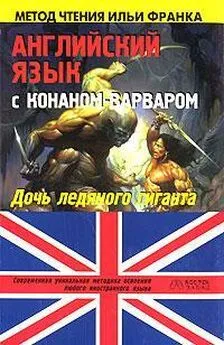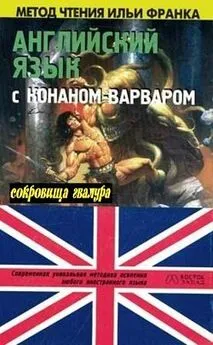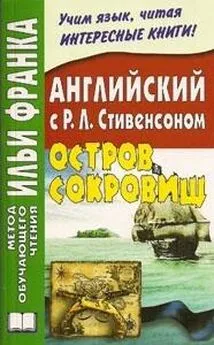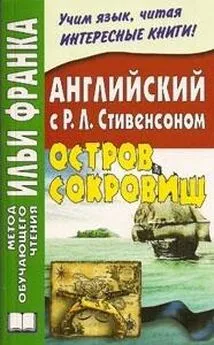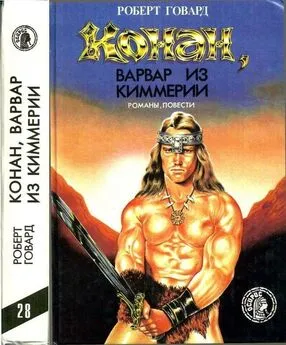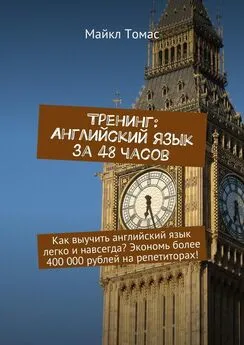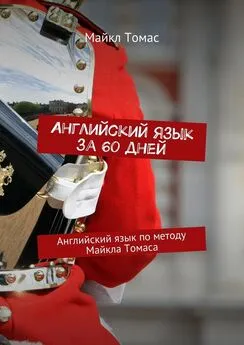Роберт Говард - Английский язык с Конаном-варваром
- Название:Английский язык с Конаном-варваром
- Автор:
- Жанр:
- Издательство:АСТ, Восток-Запад
- Год:2007
- Город:Москва
- ISBN:5-17-042032-3, 5-478-00503-7
- Рейтинг:
- Избранное:Добавить в избранное
-
Отзывы:
-
Ваша оценка:
Роберт Говард - Английский язык с Конаном-варваром краткое содержание
В книге предлагается произведения Роберта Е. Говарда, адаптированные (без упрощения текста оригинала) по методу Ильи Франка. Уникальность метода заключается в том, что запоминание слов и выражений происходит за счет их повторяемости, без заучивания и необходимости использовать словарь. Пособие способствует эффективному освоению языка, может служить дополнением к учебной программе. Предназначено для студентов, для изучающих английский язык самостоятельно, а также для всех интересующихся английской культурой.
Метод чтения Ильи Франка
Содержание:
Дочь ледяного великана
Проклятие монолита
Замок ужаса
За Черной рекой
Тени Замбулы
Английский язык с Конаном-варваром - читать онлайн бесплатно полную версию (весь текст целиком)
Интервал:
Закладка:
rang [ræŋ], naught [nɔ: t], heavy [ˈhevɪ]
From within the ancient pile of stone, no more cries of terror rang. There was naught but an ominous silence. Then Conan heard slow, heavy, shuffling footsteps. Had the ogreish thing slaughtered them all? Was it dragging its misshapen bulk toward the door, to emerge into the courtyard?
Conan did not wait to find out (Конан не ждал = не стал дожидаться , чтобы выяснить /это/). With trembling fingers he unlaced the dead man's hauberk and pulled the mail shirt off (дрожащими пальцами она развязал кольчугу мертвого мужчины = мертвеца и стянул кольчужную рубаху). He also collected the Stygian's helmet and shield, the latter made from the hide of one of the great, thick-skinned beasts of the veldt (он также собрал = подобрал шлем и щит стигийца, последний /был/ сделан из шкуры одной из огромных толстокожих тварей вельда). [27] Степь.
He hastily tied these trophies to the saddle, vaulted upon the steed, wrenched at the reins, and kicked the mare's ribs (он поспешно привязал эти трофеи к седлу, вскочил на лошадь, дернул удила и ударил ногами кобылу под ребра; to kick — бить ногой ). He galloped out of the ruined courtyard into the region of withered grass (он вылетел галопом из разрушенного двора в местность с засохшей травой; to gallop — скакать / нестись галопом ). With every stride of the flying hoofs, the castle of ancient evil fell behind (с каждым скоком летящих копыт замок древнего зла отставал = отдалялся; to fall behind — отставать ).
latter [lætə], steed [sti: d], grass [ɡrɑ: s]
Conan did not wait to find out. With trembling fingers he unlaced the dead man's hauberk and pulled the mail shirt off. He also collected the Stygian's helmet and shield, the latter made from the hide of one of the great, thick-skinned beasts of the veldt. He hastily tied these trophies to the saddle, vaulted upon the steed, wrenched at the reins, and kicked the mare's ribs. He galloped out of the ruined courtyard into the region of withered grass. With every stride of the flying hoofs, the castle of ancient evil fell behind.
Somewhere beyond the circle of dead grass, perhaps the hungry lions still prowled (где-то за кругом мертвой травы, возможно, все еще рыскали голодные львы). But Conan did not care (но Конану было наплевать: «Конан не заботился / тревожился»). After the ghostly horrors of the black citadel, he would gladly take his chances with mere lions (после призрачных ужасов черной цитадели он с радостью померился бы силами с простыми львами; to take one’s chance with — помериться силой с, испробовать свои шансы, попытать удачу; mere — простой, не более чем, всего лишь ).
prowl [praul], care [kɛə], mere [mɪə]
Somewhere beyond the circle of dead grass, perhaps the hungry lions still prowled. But Conan did not care. After the ghostly horrors of the black citadel, he would gladly take his chances with mere lions.
Beyond the Black River
(За Черной рекой)
1. Conan Loses His Ax
(Конан теряет /свой/ топор)
The stillness of the forest trail was so primeval that the tread of a soft-booted foot was a startling disturbance (тишина лесной тропы = на лесной тропе была так первозданна, что поступь ступни в мягкой обуви: «мягко обутой» была пугающим нарушением спокойствия). At least it seemed so to the ears of the wayfarer, though he was moving along the path with the caution that must be practised by any man who ventures beyond Thunder River (по крайней мере она казалась такой для ушей путника, хотя он двигался по тропе с осторожностью, которую должна быть соблюдена = нужно соблюдать любому /человеку/, кто отваживается /зайти/ за Громовую реку). He was a young man of medium height, with an open countenance and a mop of tousled tawny hair unconfined by cap or helmet (он был молодым человеком среднего роста, с открытым лицом и копной взъерошенных рыжевато-коричневых волос, непокрытых шапкой или шлемом; to confine — ограничивать; заточать, держать взаперти ). His garb was common enough for that country — a coarse tunic, belted at the waist (его наряд был довольно обычным для этой местности — грубая туника, подпоясанная у талии; to belt — перехватывать ремнем, опоясывать; ), short leather breeches beneath (короткие кожаные штаны под /ней/), and soft buckskin boots that came short of the knee (и мягкие сапоги из выделанной оленьей кожи, которые не доходили до колен; to come short of — не хватать, не доходить ). A knife-hilt jutted from one boot-top (рукоять ножа выдавалась из голенища). The broad leather belt supported a short, heavy sword and a buckskin pouch (широкий кожаный ремень поддерживал короткий тяжелый меч и сумку из оленьей кожи). There was no perturbation in the wide eyes that scanned the green walls which fringed the trail (в широких = широко раскрытых глазах, что разглядывали зеленые стены, которые окаймляли тропу, не было беспокойства). Though not tall, he was well built (хотя /и/ не высокий, он был хорошо сложен), and the arms that the short wide sleeves of the tunic left bare were thick with corded muscle (а руки, которые короткие широкие рукава туники оставляли открытыми, были крепкими с узловатой мускулатурой; to leave — оставлять ).
knee [ni: ], pouch [pautʃ], sleeve [sli: v]
The stillness of the forest trail was so primeval that the tread of a soft-booted foot was a startling disturbance. At least it seemed so to the ears of the wayfarer, though he was moving along the path with the caution that must be practised by any man who ventures beyond Thunder River. He was a young man of medium height, with an open countenance and a mop of tousled tawny hair unconfined by cap or helmet. His garb was common enough for that country — a coarse tunic, belted at the waist, short leather breeches beneath, and soft buckskin boots that came short of the knee. A knife-hilt jutted from one boot-top. The broad leather belt supported a short, heavy sword and a buckskin pouch. There was no perturbation in the wide eyes that scanned the green walls which fringed the trail. Though not tall, he was well built, and the arms that the short wide sleeves of the tunic left bare were thick with corded muscle.
He tramped imperturbably along, although the last settler's cabin lay miles behind him (он шел спокойно вперед, хотя хижина последнего поселенца лежала /в/ милях позади него), and each step was carrying him nearer the grim peril that hung like a brooding shadow over the ancient forest (и каждый шаг нес его ближе к мрачной опасности, которая нависла как тягостная тень над древним лесом; to hang — висеть; to brood — высиживать; нависать /об облаках, тьме и т. п./; тяготить /о заботах/ ).
last [lɑ: st], hung [hʌŋ], cabin [ˈkæbɪn]
He tramped imperturbably along, although the last settler's cabin lay miles behind him, and each step was carrying him nearer the grim peril that hung like a brooding shadow over the ancient forest.
He was not making as much noise as it seemed to him (он не создавал так много = столько шума, как /это/ ему казалось), though he well knew that the faint tread of his booted feet would be like a tocsin of alarm to the fierce ears that might be lurking in the treacherous green fastness (хотя он хорошо знал, что слабый = легкий шаг его обутой ступни был бы как набатный колокол для шустрых ушей, которые, возможно, таились в предательской зеленой тиши; might — прошедшее время от may — может, образует конструкцию вероятности — возможно, может быть, вероятно ). His careless attitude was not genuine (его беспечное состояние = беспечность не была искренней = была наигранной ); his eyes and ears were keenly alert (его глаза и уши были очень насторожены), especially his ears, for no gaze could penetrate the leafy tangle for more than a few feet in either direction (особенно его уши, так как никакой взгляд /не/ мог /бы/ проникнуть /за/ сплетение листьев более, чем для = на несколько футов в любом направлении).
noise [nɔɪz], well [wel], tangle [tæŋɡl]
He was not making as much noise as it seemed to him, though he well knew that the faint tread of his booted feet would be like a tocsin of alarm to the fierce ears that might be lurking in the treacherous green fastness. His careless attitude was not genuine; his eyes and ears were keenly alert, especially his ears, for no gaze could penetrate the leafy tangle for more than a few feet in either direction.
But it was instinct more than any warning by the external senses which brought him up suddenly (но /это был/ скорее инстинкт, нежели какое-либо предупреждение от его наружных /органов/ чувств, /который/ вдруг остановил его), his hand on his hilt (его рука на его эфесе /меча/ = его рука /скользнула/ на эфес ). He stood stock-still in the middle of the trail (он стоял не шелохнувшись посредине тропы; to stand stock-still — стоять не шелохнувшись; stock — главный ствол /дерева/; пень ), unconsciously holding his breath (бессознательно = невольно задерживая /свое/ дыхание), wondering what he had heard, and wondering if indeed he had heard anything (спрашивая себя, что он услышал, и спрашивая себя, действительно ли он услышал что- то). The silence seemed absolute (тишина казалась абсолютной). Not a squirrel chattered or bird chirped (ни одна белка /не/ шуршала, ни /одна/ птица /не/ щебетала). Then his gaze fixed itself on a mass of bushes beside the trail a few yards ahead of him (затем его взгляд сосредоточил себя = сосредоточился на скоплении кустов за тропой в нескольких ярдах перед ним). There was no breeze, yet he had seen a branch quiver (/не/ было никакого ветра, но он увидел ветка колыхаться = как ветка колыхнулась ). The short hairs on his scalp prickled (короткие волосы на его скальпе = у него на голове встали дыбом), and he stood for an instant undecided (и он стоял мгновение в нерешительности: «нерешенный»; to decide — решать ), certain that a move in either direction would bring death streaking at him from the bushes (уверенный /в том/, что движение в любом направлении принесет ему смерть, устремясь к нему из кустов).
Читать дальшеИнтервал:
Закладка:
